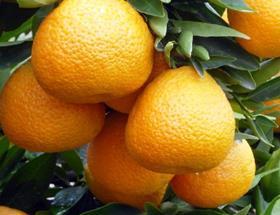
The European Union has stepped back from its tough stance on citrus black spot requirements after two days of behind-the-scenes negotiations at the EU South Africa Trade Forum in Pretoria.
As a result, It seems that, for this season at least, there will be no ban while the two parties engage in a long-term solution to the problem.
Earlier this year the EU informed South Africa that a ban on its citrus could be introduced if its fruit exceeded the allowed five incidents of interceptions with fruit showing signs of citrus black spot. This resulted in a stand-off which, this week, even involved South African President Jacob Zuma, who is credited by certain South African news media as having ‘swung the deal’ to save the country’s citrus exports.
Both Zuma and EU trade boss Karel de Gucht addressed the citrus black spot issue in media briefings, with Citrus Growers Association (CGA) spokesman Justin Chadwick confirming that both sides had decided to work out a deal.
Last night (18 July), European Commission president Jose Manuel Barroso said that he was confident a solution would be found: 'We have seen a marked improvement and there have been no interceptions, we now propose a flexible regime. I am sure we will find a scientific solution together.'
Looming threat
The threat of EU action has been looming large over the South African industry since the start of the season, and complicated and far-reaching measures have been introduced to eliminate fruit which could pose a risk of interceptions.
This has led to logistical problems as additional inspections had to be conducted in the ports to ensure compliance, while growers and orchards where citrus black spot was found have been banned from shipping to Europe.
In the process, lemon producers have cut at least 1m cartons of fruit from European supplies in order to cut the risk to exports of their other citrus categories. Exporters say they often get results of inspections after the fruit had been shipped, with the result being that containers have to be diverted once the fruit is already on the water.
At the start of the peak Valencia season, it had been feared that the risk of interceptions would increase as large crops in the north of the country reach the market. The news of a possible deal is therefore something that will cause much relief.
However, it remains to be seen what the long term solution will be. South African exporters know that the process in Brussels is complex and that much will have to be done to reach an agreement with some of the southern European countries, who made no secret of their support for the tough EU stance.
South Africa has argued for an independent verification of all the research and evidence they have presented to assure the EU that citrus black spot cannot be transferred on the fruit, and that EU citrus growers are therefore not at risk.
Spat
The citrus black spot issue must also be measured against the backdrop of the recent spat between South Africa and the EU, following a South African decision to review its bilateral investment treaties with European states. This caused a stand-off at the Pretoria summit which threatened to boil over.
President Jacob Zuma, in an effort to avoid further tension, assured the EU that South Africa’s relationship with Europe is important and strategic, while Trade and Industry Minister Rob Davies also gave the assurance that the expiry of South Africa’s bilateral investment treaties with European states in no way put their investments at risk, or posed a threat to trade.
At the South Africa-EU business forum on Wednesday, in remarks that appeared to stun Mr Davies, EU trade boss Karel de Gucht warned South Africa not to take its relationship with Europe, its biggest single trade partner, for granted. Trade sources say his remarks were welcomed by European delegates attending the event, which was a precursor to Thursday’s South Africa-EU summit.
Media sources said that the backdrop to the summit has been South Africa’s warm embrace of the BRICS bloc of emerging nations, principally China, which is regarded with a mix of envy and suspicion in Europe. They say the EU is competing with the emerging giants to retain its position as the largest and favoured trading and investment partner with South Africa, and, broadly speaking, the African continent.
United
In the case of South Africa, they say, sentiment, focus and practical engagement seem to have swung the way of the BRICS. Mr Zuma said the EU and South Africa were united in strengthening trade, investment and political ties, which would be achieved through a mutual focus on job creation by means of inward investment, and in line with the government’s vision in the National Development Plan to 2030.
Herman Van Rompuy, president of the European Council, said the EU and South Africa shared common values, amid talks that also covered conflict in the Middle East and Africa’s Sahel region.
The traditional bond between the South African fruit sector and Europe remains strong and this year South Africa delivered even more fruit to Europe despite the previously stated intention to focus more on the markets in the East. They will hope that once the negotiations for a permanent resolution of the black spot issue starts, it will not sink into the bureaucratic jungle which is the corridors of Brussels.



